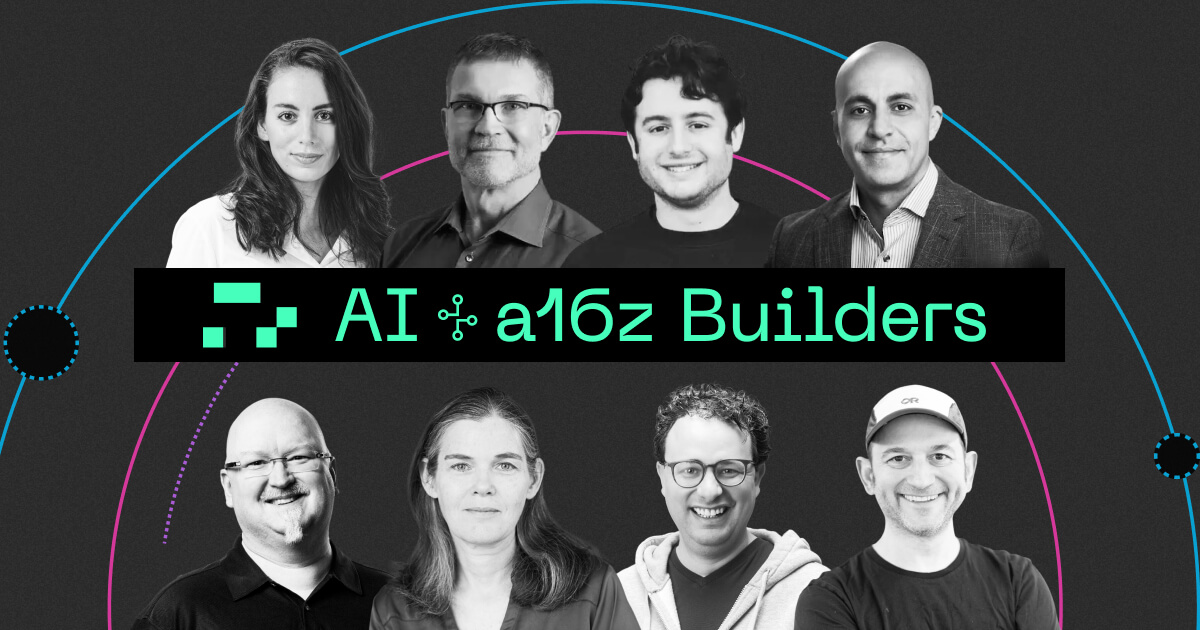
What Builders Talk About When They Talk About AI | Andreessen Horowitz

But if you could get AI to suggest interface elements to people and do that in a way that actually makes sense, I think that could unlock a whole new era of design in terms of creating contextual designs that are responsive to what the user’s intent is at that moment.
Sarah Wang • What Builders Talk About When They Talk About AI | Andreessen Horowitz
I have a Turing test question for AI: if we took AI in 1633 and trained on all the available information at that time, would it predict that the Earth or the sun is the center of the solar system—even though 99.9% of the information is saying the Earth is the center of the solar system? I think 5 years is right at the fringe, but if we were to run... See more
Sarah Wang • What Builders Talk About When They Talk About AI | Andreessen Horowitz
There was a study out there that did this "time-line" training.
It will make things way better if you can just dump in massive amounts of information. It should be able to know a billion things about you. The HBM bandwidth is there.
—Noam Shazeer, Character.AI
—Noam Shazeer, Character.AI
Sarah Wang • What Builders Talk About When They Talk About AI | Andreessen Horowitz
I actually disagree with this. I think a bunch of further improvement will come by figuring out better ways to finding important information in databases (instead of just simarlity search) and figuring out how to extract relevant information from conversations, documents, etc. so we can provide only relevant information.
Getting models into the hands of users will help us discover new use cases
Sarah Wang • What Builders Talk About When They Talk About AI | Andreessen Horowitz
If you look at every technological shift or platform shift so far, it’s resulted in more things to design. You got the printing press, and then you have to figure out what you put on a page. More recently, mobile. You would think, “Okay. Less pixels, less designers.” But no, that’s when we saw the biggest explosion of designers.
—Dylan Field, Figma
—Dylan Field, Figma
Sarah Wang • What Builders Talk About When They Talk About AI | Andreessen Horowitz
Dylan Field on why AI will not mean less jobs
If you have to be correct and you’ve got a very long and fat tail of use cases, either you do all of the work technically or you hire people. Often, we hire people. That’s a variable cost. Second, because the tails of the solutions tend to be so long—think something like self-driving where there are so many exceptions that could possibly happen—the... See more
Sarah Wang • What Builders Talk About When They Talk About AI | Andreessen Horowitz
Powerful AI systems can help us interpret the neurons of weaker AI systems. And those interpretability insights often tell us a bit about how models work. And when they tell us how models work, they often suggest ways that those models could be better or more efficient. —Dario Amodei, Anthropic
Sarah Wang • What Builders Talk About When They Talk About AI | Andreessen Horowitz
It's a little bit of a conundrum. A model we do not understand explains another model we do not understand.
If you made a thousand versions of an LLM, that’s good at a thousand different things, and you have to load each of those into the GPUs and serve them, it becomes very expensive. The big holy grail right now that everybody’s looking for is: are there techniques, where you can just do small modifications where you can get really good results? There... See more
Sarah Wang • What Builders Talk About When They Talk About AI | Andreessen Horowitz
PEFT in a nutshell.
Very simply, Jevons Paradox states: if the demand is elastic and the price drops, the demand will more than make up for it. Normally, far more than make up for it. This is absolutely the case of the internet. You get more value and more productivity. I personally believe when it comes to any creative asset or work automation, the demand is elastic.... See more
Sarah Wang • What Builders Talk About When They Talk About AI | Andreessen Horowitz
I think this will be true for AI in general. ChatGPT starts out entering the enterprise, they get accustomed to it, they see the tangible results, and want to try it elsewhere without wanting an exact quantification in cost savings / revenue increases (which is often too hard to do for AI).